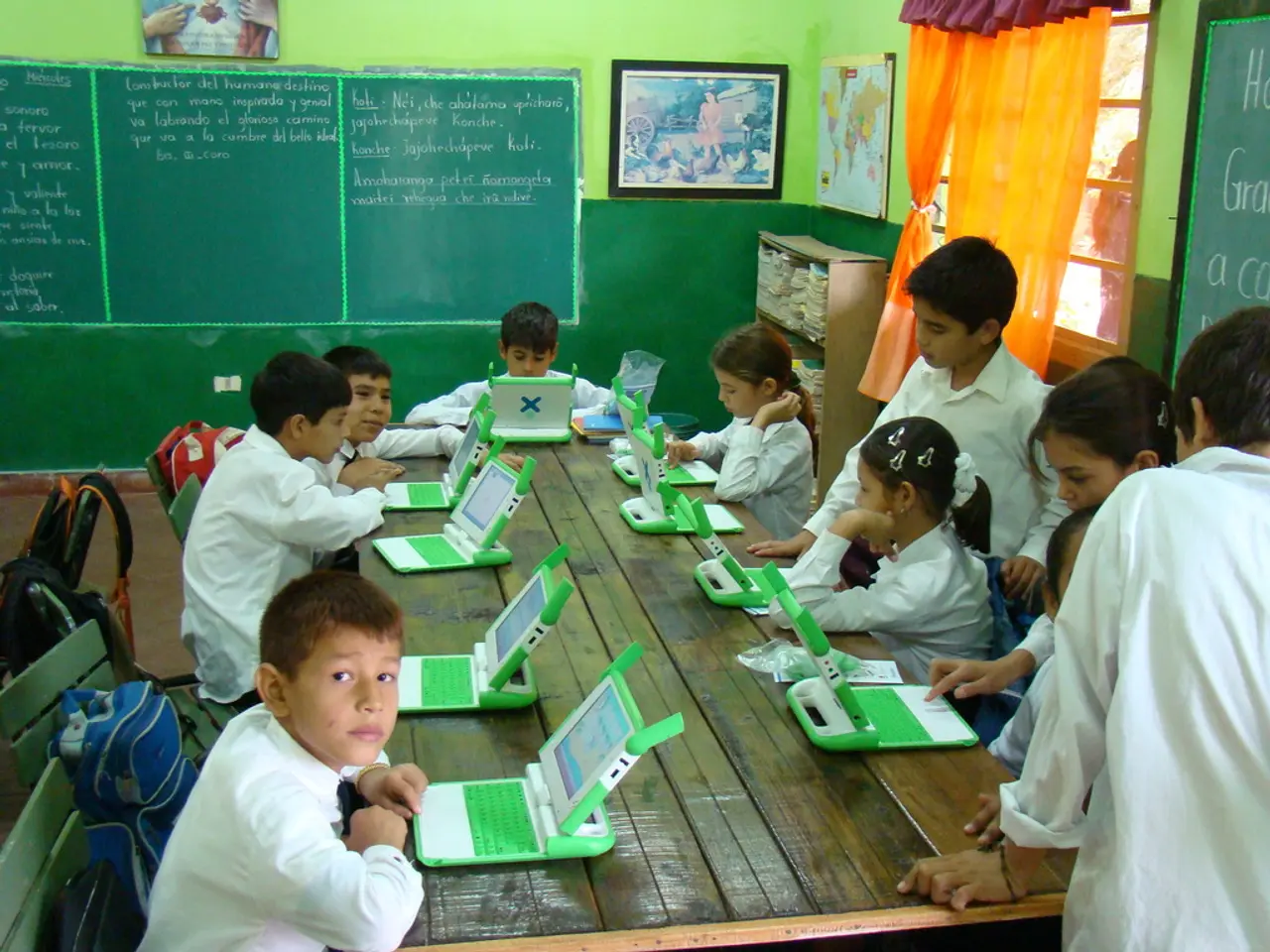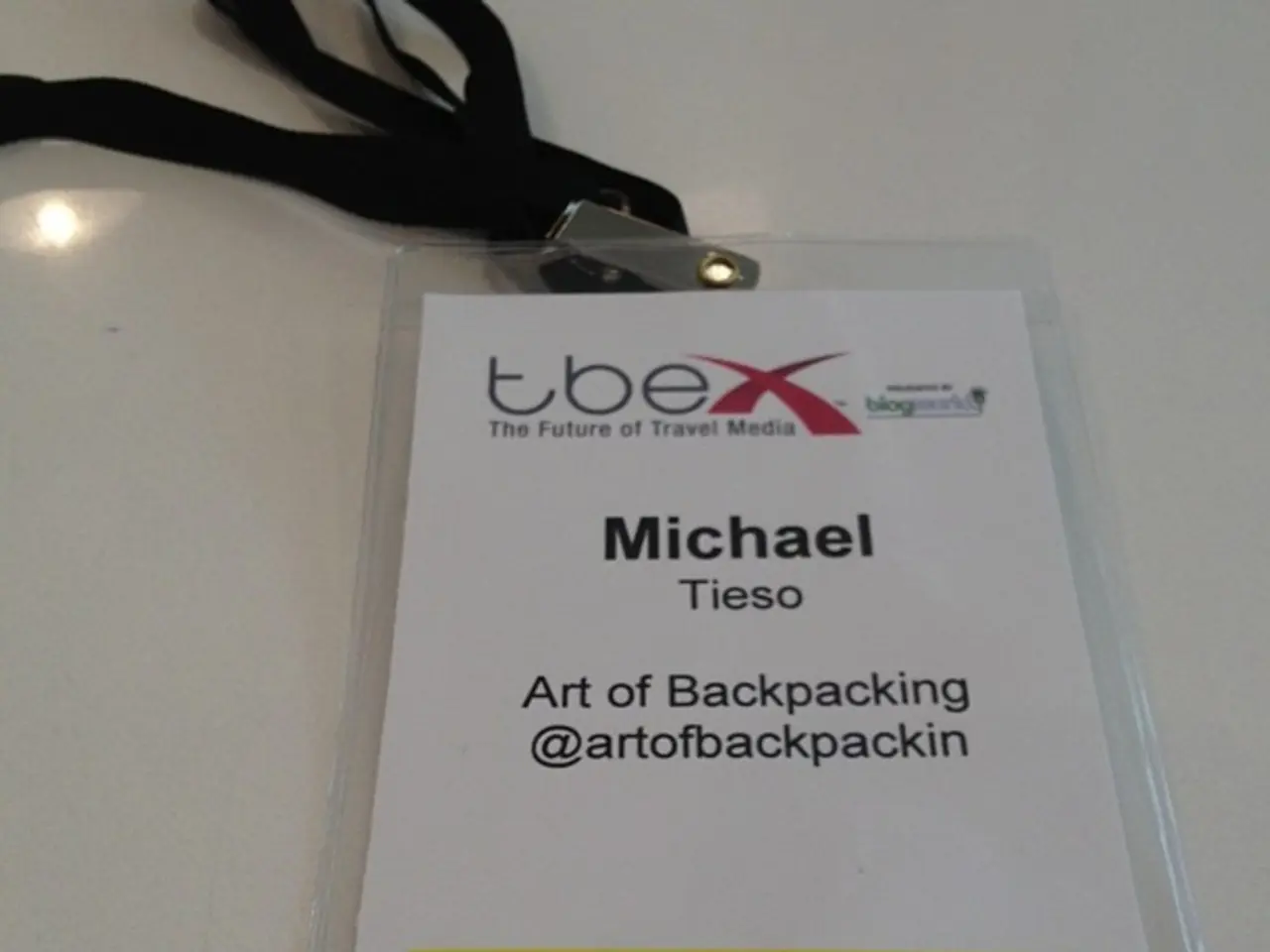At Power Learn, tech competence is deemed irrelevant if it fails to affect your earning potential.
In the heart of Africa, a groundbreaking edtech organisation named Power Learn Project (PLP) is making waves, connecting digital skills training to income opportunities for thousands of young people across the continent. Founded in 2021 by Mumbi Ndung'u and Kenji Sasaki, PLP is on a mission to address the growing digital divide and promote economic inclusion.
At the core of PLP's strategy is a 16-week software development course, offering front-end and back-end development, mentorship, project-based learning, and hackathons. This comprehensive training, fully funded and available to youth from low-income communities in Kenya, South Africa, Nigeria, Zambia, and Rwanda, is designed to equip learners with the skills needed to thrive in the tech economy [1][3][4].
Partnerships play a crucial role in PLP's success. Major partners like Safaricom's youth platform, Safaricom Hook, ensure that the training is not only accessible but also relevant to the needs of the digital industry. These collaborations provide resources and opportunities to the learners [1][3].
The PLP Talent Hub serves as a vital link between training and employment. This platform connects graduates with job opportunities, internships, freelance work, and startup support, bridging the gap between the classroom and the job market [1][4].
PLP's pan-African reach ensures that digital skills are democratized and accessible to a wide range of youth, helping to address the digital divide and promote economic inclusion [4]. The project emphasizes employer engagement, encouraging companies to utilize the skills of the trained workforce, ensuring that the skills acquired are useful and relevant in the job market [1].
The long-term impact of PLP aligns with its broader mission to empower a digitally empowered generation of innovators and problem solvers. By catalyzing innovation and economic growth, PLP is equipping youth with skills that are in high demand across Africa [3][4].
One shining example of PLP's success is Dedan Okware, an alumnus who co-founded iThreeM, a Web3 company now part of a growing wave of African blockchain startups [2].
As a non-profit, PLP receives funding from development agencies, corporate backers like telco Safaricom, and some government support. Employer partnerships and custom training generate income for PLP [2]. Despite its scale, the team behind PLP cautions that impact, not just scale, is crucial. They emphasise the importance of training young people from underserved communities [2].
The Safaricom partnership extends beyond the initial co-branded training programme, involving curriculum design, mentorship, and startup support [2]. PLP also has a startup incubation arm that supports ventures built by alumni, making it a test case for large tech employers helping close the loop between training and employment [2].
As PLP continues to expand its operations to Francophone and North Africa, requiring adjustments to content, delivery formats, and local relationships, its commitment to bridging the digital skills gap and empowering a new generation of innovators remains unwavering. The Connected Africa Summit, an annual event that brings together policymakers, telcos, investors, and tech operators to discuss infrastructure, regulation, and digital growth on the African continent, is a testament to PLP's impact and the future of digital education in Africa.
- Power Learn Project (PLP), an edtech organization in Africa, is receiving investment from development agencies, corporate backers like telco Safaricom, and some government support, to empower a digitally empowered generation of innovators and problem solvers.
- The comprehensive 16-week software development course offered by PLP covers front-end and back-end development, mentorship, project-based learning, and hackathons, fully funded and available to youth from low-income communities.
- Fintech and healthtech startups among others are potential employment outcomes for PLP graduates, as the PLP Talent Hub connects graduates with job opportunities, internships, freelance work, and startup support.
- As part of its strategy, PLP collaborates with partners like Safaricom's youth platform, Safaricom Hook, to ensure that the training is relevant to the needs of the digital industry, providing resources and opportunities to the learners.
- Blockchain technology has found a place in Africa, with PLP alumnus Dedan Okware co-founding iThreeM, a Web3 company now part of a growing wave of African blockchain startups.
- The organization's operations span across Kenya, South Africa, Nigeria, Zambia, Rwanda, and are expanding to Francophone and North Africa, requiring adjustments to content, delivery formats, and local relationships, in order to make digital skills democratized and accessible to a wide range of youth.
- PLP's long-term impact aligns with its mission to catalyze innovation and economic growth, bridging the digital divide, promoting economic inclusion, and equipping youth with skills that are in high demand across Africa. Additionally, PLP has a startup incubation arm that supports ventures built by alumni, making it a test case for large tech employers fostering career opportunities for the trained workforce.




